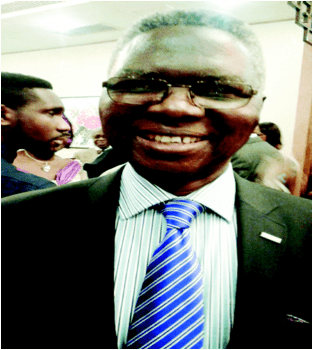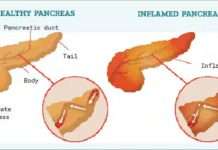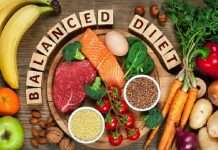Engr David Chidolue Ifezulike is the Chairman of Nestle Nigeria Plc, which is part of Nestle Central and Africa Region (CWAR), headquartered in Accra, Ghana. He recently marked his 70th birthday and feted friends and family at the prestigious Intercontinental Hotel, Lekki, Lagos.
Pharmanews’ senior correspondent, Chinwe Odita, seized the opportunity to chat with him about the impact of the current recession on Nestle Foods and the food and beverages industry as a whole. He also spoke about other pressing national issues. Excerpts:
Congratulations on your birthday, sir.
Thank you. I am happy being surrounded by very close friends and family and my dear wife of 40 years.

Tell us a little about yourself and Nestle Foods Plc, Nigeria.
I am an engineer by profession. I attended Imperial College, London, UK. I obtained an M.Sc. in Petroleum Engineering and another in DIC Management Science.
I served at Nestle Group from 1984 to 2006. I worked in Malaysia, Zimbabwe, Switzerland, Ghana and Nigeria – in Manufacturing, Production and Technical areas. While in Nestle, I rose to the position of executive director of Industrial Development. I became a director on the board of directors of Nestle in December 2000 and have been chairman of the company since May 10, 2013.
Nestle Plc is one of the foremost food companies in the world. It has been in existence for over 150 years and a committed player in West Africa since 1957.
Our core values are based on respect for people, respect for the environment and respect for the diverse world we live in. The company has the largest research development network of any food company in the world.
Nestle, which is quoted on the Nigerian Stock Exchange, has two major segments: Food and Beverages. The Food segment deals with the the production and sale of Maggi, Cerelac, Nutrend, Lactogen, Nan and Golden Morn.
The Beverages segment focuses on the production and sale of Milo, Chocomilo, Nido, Nescafe and Nestle Pure Life. Our products are a favourite for most Nigerian homes.
How has the economic recession in the country affected the food and beverages sector in which Nestle Foods is a major player? How has it specifically affected Nestle?
For Nestle, like every other company, all areas are affected. Getting foreign exchange for importing raw materials and replacements for machinery has been tough. It’s been nearly impossible to get sufficient foreign exchange and, as you well know, if one has to go to the parallel market, it is far more costly. So, all materials for equipment replacement or acquisition of newer technology have been affected.
Also, weak consumer spending because of the recession is definitely hurting most manufacturing companies. The company also has to consider the dividends to be paid to shareholders.
Nestle however is coping reasonably. We learnt a long time ago to cut out frivolities in our spending. About three years ago, I was speaking to a CBN official and I told him that there is a need to place a limit on Nigerians’ spending. There is a need to place embargo on our spending outside the country. We have too much appetite for foreign goods.
A lot of companies and banks are currently exposed to foreign loans and they are even in more trouble since the recession started because they have to service and pay back the loans.
Nestle however has always looked inwards to replace imported raw materials for our products. We started as far back as 1983 to replace foreign sourced raw materials used for our products, with locally sourced ones. For example, we replaced butter oil with refined vegetable oil; barley malt extract has been replaced with maize, soya, millet, sorghum, etc.
What should the Nigerian government be doing to protect the industrial sector as a whole during this period?
For me, the Nigerian government needs to bring confidence back into the system because there is a lot of fear in the country. In 1999, the economy was not much better in terms of foreign reserves but there was less fear. The government needs to find a way to make peace in the Niger Delta because they are still the geese laying the golden eggs.
Diversifying the economy takes time and this constant disruption through blowing up of pipelines and killings is only creating more instability and fear. Beyond earnings from oil, gas supply for our electricity generation is one more reason why we still need peace in the Niger Delta.
The fight against corruption by the government is good. Whoever steals money must be sanctioned to serve as a deterrent to others. Nigerian citizens, as well as the government, must cut down or completely cut off frivolous spending. Too much frivolous spending has not added any value to us as a country. We must change our tastes and embrace locally manufactured products. Our leaders should lead by example and buy made-in-Nigeria products.
What is your assessment of NAFDAC’s efforts to ensure packaged food products sold and distributed in Nigeria are safe and healthy? Also are there measures the agency can or should take to protect Nigerians from fake food products?
NAFDAC’s assignment is clear but tasking. They should look at smuggled products, which is a big issue in this country. Smugglers are the ones that break all the rules and don’t pay duties or taxes that local manufacturers of similar goods pay. Local manufacturers are the ones suffering because they pay heavy taxes.
Our government should borrow a leaf from developed countries where local manufacturers are encouraged through reduction of taxes and less duty payment for importation of new machinery and few raw materials which cannot be sourced locally. Here in Nigeria, local manufacturers are handicapped to a large extent because their products end up being quite expensive compared to foreign imports. This is mainly because they provide their own electricity, water and in some cases, even their own roads. The case of Cutix Plc is a clear example – and they make internationally standard cables compared to the often substandard foreign imports that abound in the country.
I believe that the way forward is for the government to reduce the taxes of local manufacturers of products and put in place an enabling environment for them to thrive and compete favourably with their foreign imported competitors.
World Health Organisation (WHO) has recently become more vehement in discouraging high sugar intake. It is said that many of the food drinks and beverages manufactured by food companies in Nigeria contain a lot of added sugar. What should we expect from Nestle in the next 10 years?
Nestle is at the top of research worldwide and we look at what is healthy. We have always pioneered moderation in everything. We continue to invest heavily in the development and improvement in the nutritional profile of all our products and we have continuously reduced salt, sugar, Trans fat and saturated fat as well as artificial colourings.
We use science-based solutions to improve the quality of life through food and diet, thereby contributing to the health and wellbeing of consumers. I am not an expert in these matters but Nestle strives to offer products with high nutritional value at lower prices.














usa pharmacy india: https://genericwdp.com/ generic drugs without doctor’s prescription
tadalafil max dose: http://tadalafilonline20.com/ tadalafil